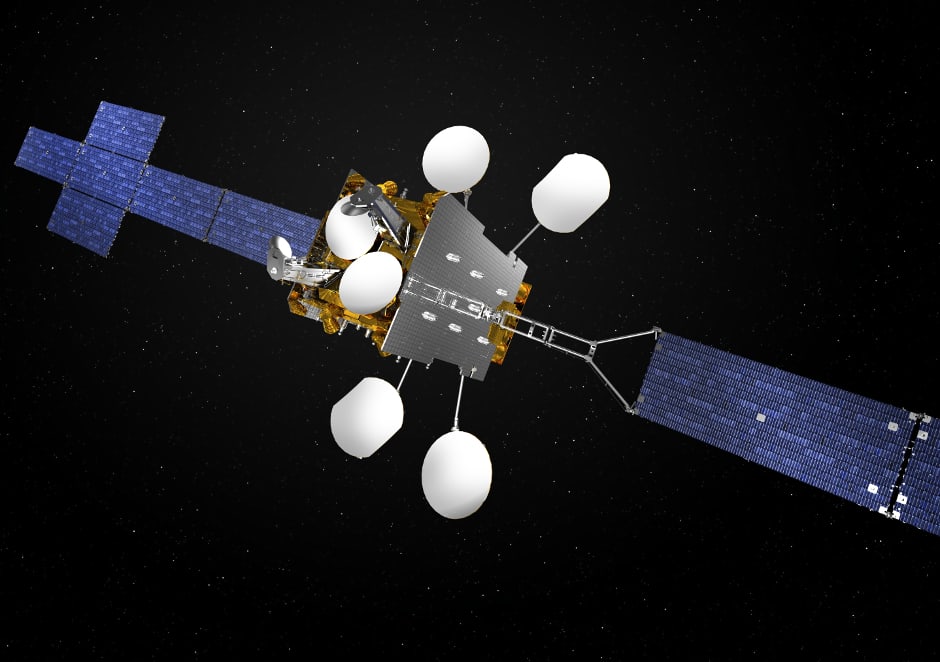
Thales Alenia Space launched the Space Propulsion Integration Centre – the first of its kind in the UK - in 2016, and it has now produced the first Xenon Propulsion System (XPS) module for satellites.
Electric propulsion systems convert energy collected from the sun into thrust by accelerating inert Xenon gas ions. They are significantly more efficient than chemical systems, requiring just one-fifth of the propellant to carry out the same mission.
As a result, electric propulsion is fast becoming a standard form of propulsion for many satellite missions, according to Ben Olivier, chief executive officer for Thales Alenia Space UK.
“Electric propulsion is about 5-10 times more efficient than chemical propulsion, so you only have to carry a fraction of the fuel in order to get the same effective increase in speed,” he said.
This means all-electric satellites are significantly cheaper to operate than chemical-based systems, he said. “It’s a big price differentiator for customers, we’re talking maybe tens of millions of dollars improvement over a chemical propulsion system,” he said.
The company already has orders for four all-electric Spacebus Neo satellite platforms, including the Xenon Propulsion System (XPS) modules being built in the UK, from satellite operators Eutelsat and SES, and the French military. The first launch of the system is scheduled for 2019.
The Spacebus Neo satellites will be launched into low Earth orbit using a smaller launcher than is typically needed, and will then use their electric propulsion system to raise themselves into geostationary orbit.
Developing the module has involved significant challenges, said Olivier. Not least of these is the need to operate with a range of different satellite sizes, meaning the system has to be flexible.
The modules also have to cope with significant vibration during launch into orbit, he said.
What’s more, although electric propulsion systems are highly fuel efficient, they are also very low thrust, in the range of a few hundred millinewton, when compared to the 400N typical of chemical propulsion systems.
“This means you spend more time in lower orbits, and you have to maintain attitude,” said Olivier.
To this end, the company has developed mechanisms which are designed to point the thrusters in a very wide range of different directions, to ensure the system is as efficient as possible.










Comment: Engineers must adapt to AI or fall behind
A fascinating piece and nice to see a broad discussion beyond GenAI and the hype bandwagon. AI (all flavours) like many things invented or used by...